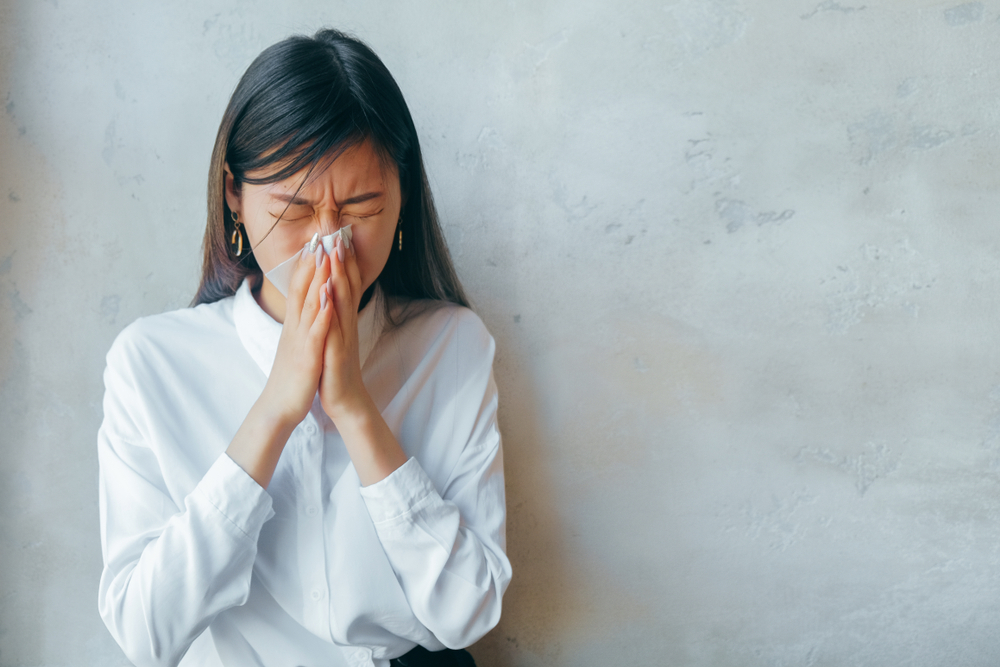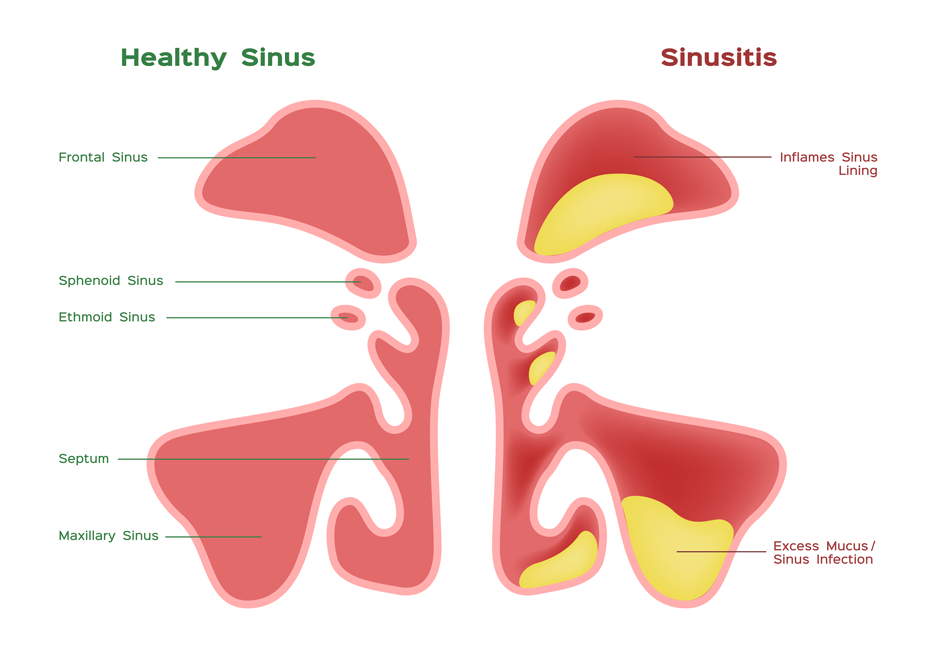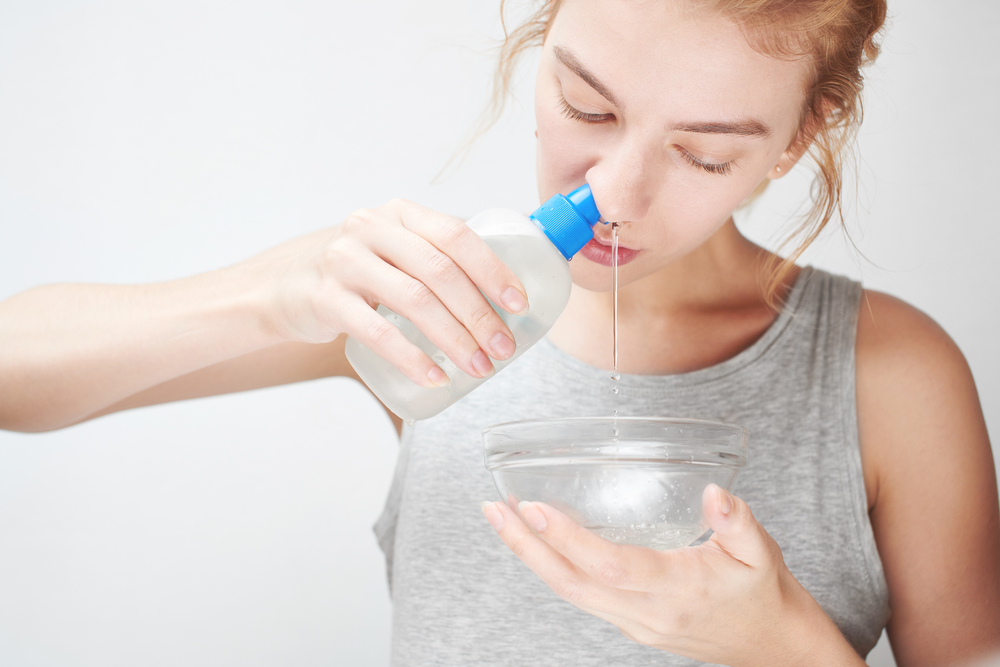
Do you have complaints of facial pain such as pressure, headaches, and nasal congestion? Maybe you have rhinosinusitis, an inflammation that occurs simultaneously in the nasal cavities and paranasal sinus cavities. Rhinosinusitis can affect all age groups, both children and adults. In fact, the incidence of rhinosinusitis is increasing, estimated at 10-15% of the population annually.
Rhinosinusitis Symptoms and Diagnosis

The diagnosis of this disease is usually established based on the history of the disease and the clinical picture felt by the patient as well as the results of an ENT examination. Risk factors such as a history of allergies, the presence of polyps, respiratory tract infections that are not handled optimally, anatomical factors of the nose such as the large size of the inner nasal bone/concha, infections originating from pollution and irritation from the air to backflow of stomach acid which can cause inflammation in the nasal mucosa.
Rhinosinusitis patients usually experience one or more of the following symptoms:
- Pain or pressure in the face
- Feeling of fullness in the face
- Nasal congestion
- Runny nose/snot discolored
- Decreased or diminished sense of smell
- Pus in the nasal cavity
- Headache
- Fever
- Bad breath
- Easily tired
- Toothache
- Coughing or like swallowing phlegm from the nose
- Pain or pressure or fullness in the ear
If you experience two or more of the above symptoms at the same time, immediately consult with an ENT specialist to get a follow-up examination. Physical examinations such as rhinoscopy and supporting examinations such as CT scans or X-rays can be done.
Types of rhinosinusitis

- Acute rhinosinusitis (RSA)
This type of rhinosinusitis is caused by a viral infection and usually lasts for 4 weeks. The characteristics of this RSA are thick snot in one nose, severe pain (both noses), and fever > 38◦ C.
- Recurrent acute rhinosinusitis ( recurrent acute rhinosinusitis )
Symptoms and signs of recurrent acute rhinosinusitis are the same as for RSA, but worsen after 5 days or persist for more than 10 days. When it relapses it will last for 7-10 days and can repeat for more than 1 year.
- Subacute rhinosinusitis (RSSA)
This type of rhinosinusitis is a continuation of RSA which does not heal within 4 weeks and symptoms will last between 4-12 weeks. RSSA patients may have received RSA therapy but failed in the process.
- Chronic rhinosinusitis
In this condition, rhinosinusitis has lasted more than 12 weeks with at least two symptoms, namely a stuffy/runny nose, decreased olfactory function, facial tenderness, and allergic symptoms (sneezing, runny nose, itchy nose, itchy eyes, and watery eyes). ).
- Chronic rhinosinusitis with acute exacerbations
This condition has persistent symptoms, where the patient can get symptoms that suddenly get worse due to repeated infections. Treatment with antibiotics cannot cure this condition.
Rhinosinusitis Treatment

In rhinosinusitis patients, the first choice of treatment is through drug therapy (medical). This therapy aims to restore the sinus drainage function so that the condition in the nasal cavity returns to normal. This therapy can use saline nasal spray (wash the nose with sterile saline solution), antibiotics, decongestants, mucolytics, nasal sprays with corticosteroids or with allergy medications if there is an allergic predisposition.
If medical therapy is lacking or does not provide an optimal response, then surgery can be performed. Surgical procedures for rhinosinusitis can include sinus irrigation/washing sinuses, FESS ( Functional Endoscopic Sinus Surgery ), polypectomy (if related to the presence of nasal polyps), and reduction of the turbinates with radiofrequency (RF).
To avoid rhinosinusitis, you can use a nose mask when cleaning the house or leaving the house. Drinking at least 10 glasses of water every day and getting quality sleep will reduce the risk of developing rhinosinusitis. If you experience symptoms of rhinosinusitis, you can consult with Dr. Edo Wira Candra, M.Kes, Sp.THT-KL from EMC Sentul Hospital on Tuesday & Saturday at 08:00 - 10:00 WIB, and Wednesday & Friday at 08:00 - 15:00 WIB. #LiveExcellently
